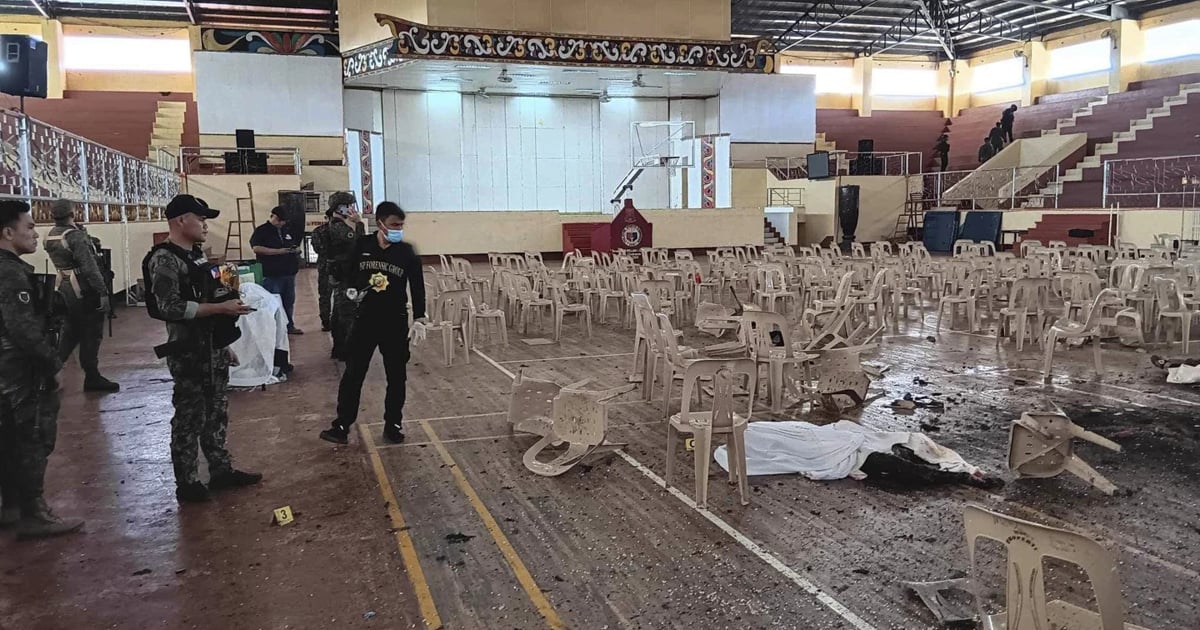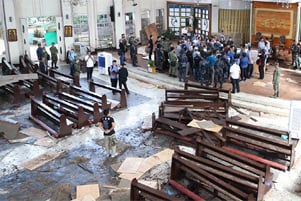"O come, Thou 'Rod of Jesse' [the Messiah],
Free Thine own from Satan's tyranny;
From depths of hell Thy people save,
And give them victory o'er the grave."
For many who receive the weekly "Persecution & Prayer Alerts," Christmastime brings to mind the imagery of joyful family celebrations, the enjoyment of peaceful carol music and, most importantly, the celebration of God's gift to humanity, as expressed through the birth of His Son Jesus. It's a season involving Christmas pageants, festive lights, gift-giving, and meaningful worship services of celebration. While the specific traditions may vary among individual families and churches, the primary purpose remains the same for all believers: to remember and celebrate the arrival of the "Promised Messiah."
Although this year's Christmas celebrations will take place in many countries throughout the world, they can result in different reactions. In some nations, celebrating Christmas is a cultural event that's welcomed, even by those who do not come from a Christian background. However, in other areas of the world, the celebrations can lead to severe opposition – to the point of being life-threatening.
Christmas Opposition
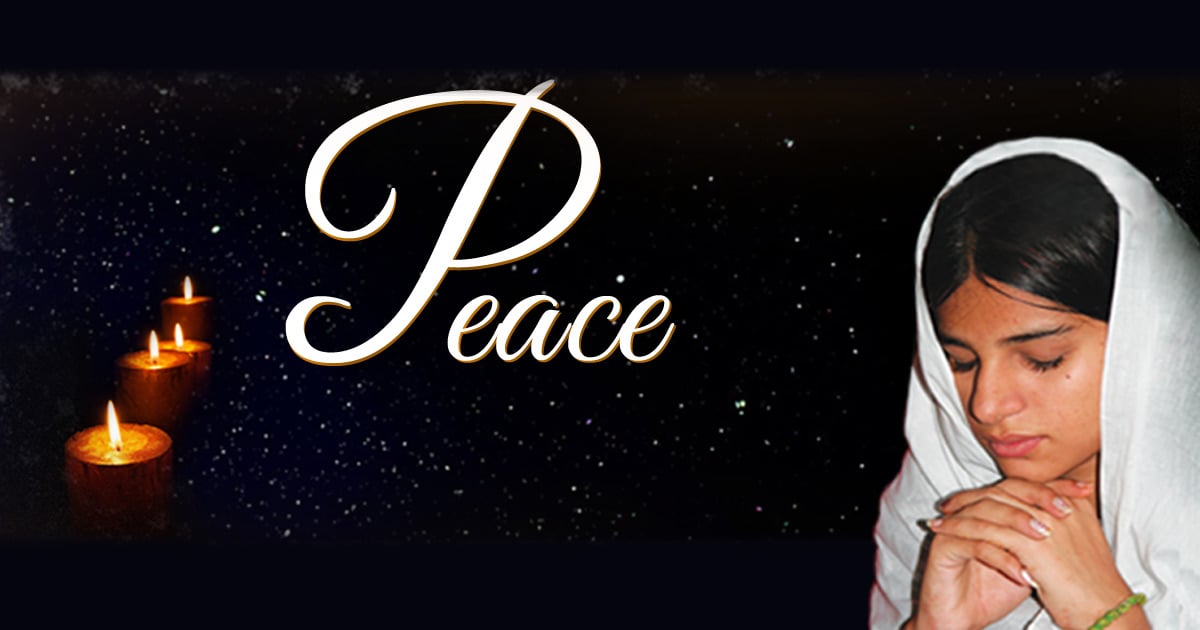
December 25th is a national holiday for all citizens in Pakistan – not as a Christmas celebration, but rather as a means of honouring the birthday of the nation's founder, Muhammad Ali Jinnah. And although Christian workers are entitled to an optional day off on the 26th, they must declare their desire to take it – a request their employers will often refuse to grant.
Even so, some Christians in Pakistan have incorporated the season's festive traditions, such as decorating trees with festive lights, as part of their Christmas celebrations. However, these believers may experience increased hostility if their disapproving neighbours object to the use of such 'symbols of Christianity.' As a result, the decorations may be forcibly removed by community members who do not welcome them.
Unfortunately, not all opposition is expressed in minor malicious acts of disapproval or simply the denial to take time off work. In 2017, a Sunday school Christmas program in the Baluchistan province of Pakistan was fatally attacked. Even though security guards thankfully prevented the suicide bombers from entering the building, and thus causing many more casualties, at least nine Christians were killed in the ensuing blast (see this report).
Just recently, on December 3rd of this year, four people were tragically killed while attending an advent service at a university in Marawi, Philippines. Many others sustained injuries as a result of the bombing attack, most of them students at the university. ISIS terrorists have since claimed responsibility for "detonating an explosive device on a large gathering of Christian 'disbelievers.'"
The attack brought reminders of a previous bombing incident that took place in the Philippines on Christmas Day during the year of 2010; an attack that wounded 11 people. While the population of the Philippines is predominantly Christian, the citizens residing in the province of Lanao del Sur (where the most recent attack occurred) are primarily Muslim. Rebels fighting for the establishment of an Islamic state are typically the perpetrators of persecution against professing followers of Jesus.
Christmas Giving

formation of genuine relationships.
Giving to the less fortunate during the Christmas season is a common tradition practised by many here in our own country. Heart-warming turkey dinners with all the trimmings are served to the homeless, and caregiving hampers are compassionately distributed among households in need. This spirit of generous giving has been adopted by many Christian communities in South Korea. Yet, for North Korean defectors who have managed to escape their oppressive homeland, the offering of material items at Christmastime without any meaningful sense of relationship can create added challenges.
Though Christianity was historically part of the culture in northern Korea, when the Communist regime seized power under the leadership of Kim Il Sung – and then continued under his son and grandson – its practice was banned and so were any vestiges of the country's former Christian traditions. If today's North Koreans know anything about Christmas, it is through foreign movies.
Most South Korean Christians and churches do not know North Korean settlers personally. Some want to help but are not sure how to do so effectively. Dr. Eric Foley from Voice of the Martyrs Korea says that churches in South Korea only know how to interact with North Korean defectors from a position of material giving. He explains that the main need of North Koreans who are now residing in South Korea is not material aid but the formation of genuine relationships with South Korean people. The lack of those relationships, coupled with the North Korean defectors' inability to help their struggling relatives back in North Korea, have led to alarmingly high suicide rates among the settlers.
In a demonstration of cultural understanding, Dr. Foley and other believers have been visiting North Korean settlers unannounced. While this custom may seem rude to Westerners, among Koreans it is considered a compliment; a demonstration that the host is known to be welcoming and hospitable. In this way, Christmas has become a time for giving by allowing North Korean settlers the opportunity of experiencing the joy of sharing and interacting with others meaningfully. "That's Christmas to us [in Korea]," Dr. Foley adds. "It's not just about giving, but also receiving. Because that is what Jesus did.... He came to earth, and received the hospitality of those to whom He came" – those whose hearts willingly welcomed Him as their Saviour and Lord!
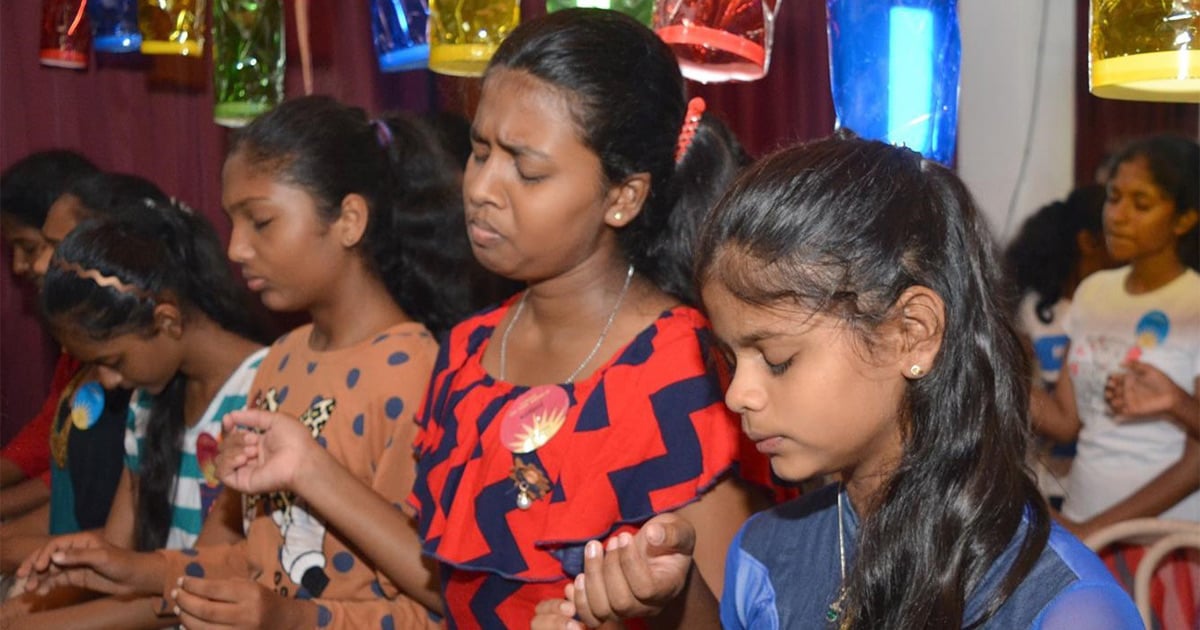
Christmas Reflection
According to the Christmas accounts recorded in the Scriptures, the news of Jesus' birth resulted in an uprising of violence against God's people during that historical era. In an effort to prevent the sovereign reign of the "King of kings" here on earth, wicked King Herod ordered the death of many innocent children. After being forced to flee for their lives, Joseph and Mary – along with their infant child Jesus – became refugees in a foreign land. And although the message of the angels was that of peace and goodwill, from the time of Jesus' birth to this present day, God's gift of spiritual peace has come at a cost for many around the world.
Until that day, when the anticipated "Prince of Peace" triumphantly returns, Christians here in Canada are urged to continue prayerfully upholding our persecuted brothers and sisters around the world, especially those who suffer threats to their freedoms, securities and safeties because of their faith in Christ. Since targeted violence against persecuted followers of Jesus tends to increase during the Christmas season, please pray for the protection of those who may be at risk as they gather to remember the birth of our "Promised Messiah" – in celebration of the eternal promises and spiritual blessings He alone can provide to all who willingly receive Him.
News Sources: Christian Solidarity Worldwide, Church in Chains, BBC, CNN, Voice of the Martyrs Korea, Christianity Today

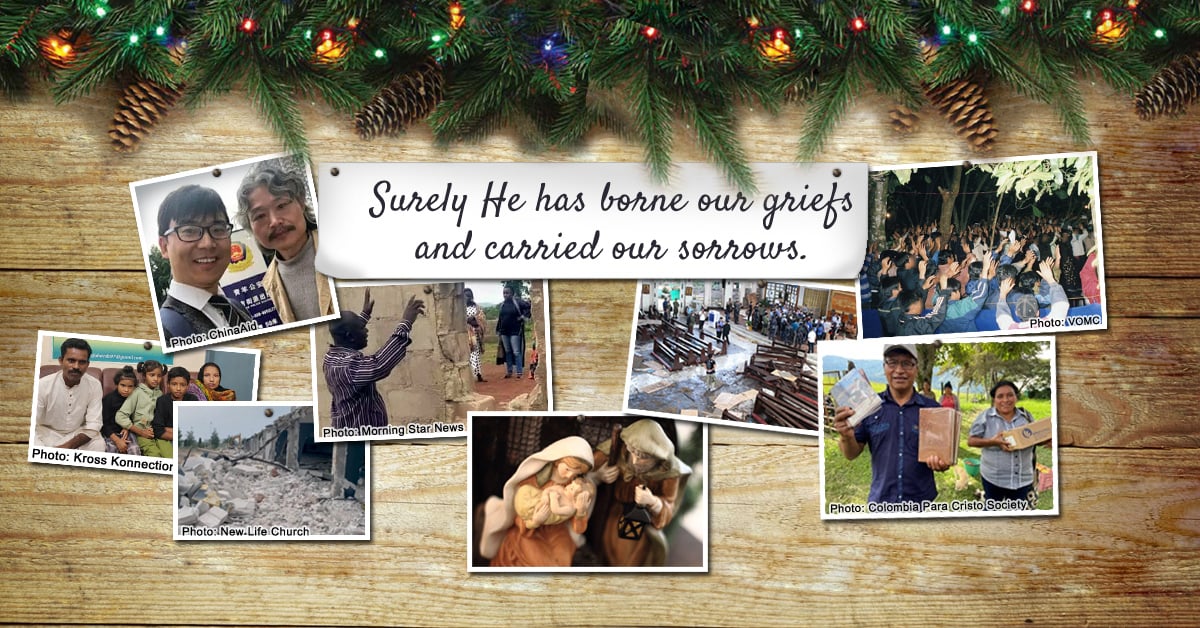
 Population
Population